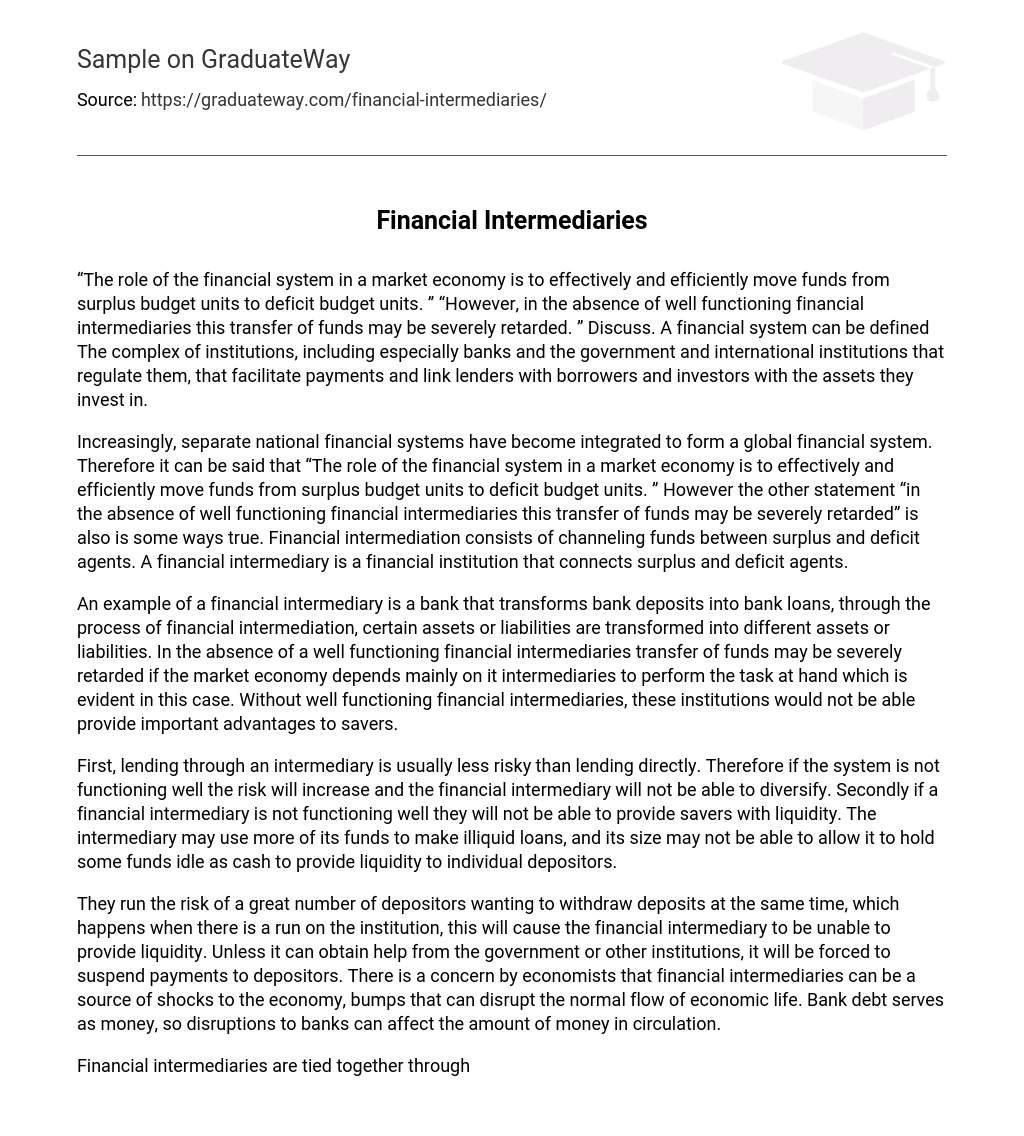“The role of the financial system in a market economy is to effectively and efficiently move funds from surplus budget units to deficit budget units. ” “However, in the absence of well functioning financial intermediaries this transfer of funds may be severely retarded. ” Discuss. A financial system can be defined The complex of institutions, including especially banks and the government and international institutions that regulate them, that facilitate payments and link lenders with borrowers and investors with the assets they invest in.
Increasingly, separate national financial systems have become integrated to form a global financial system. Therefore it can be said that “The role of the financial system in a market economy is to effectively and efficiently move funds from surplus budget units to deficit budget units. ” However the other statement “in the absence of well functioning financial intermediaries this transfer of funds may be severely retarded” is also is some ways true. Financial intermediation consists of channeling funds between surplus and deficit agents. A financial intermediary is a financial institution that connects surplus and deficit agents.
An example of a financial intermediary is a bank that transforms bank deposits into bank loans, through the process of financial intermediation, certain assets or liabilities are transformed into different assets or liabilities. In the absence of a well functioning financial intermediaries transfer of funds may be severely retarded if the market economy depends mainly on it intermediaries to perform the task at hand which is evident in this case. Without well functioning financial intermediaries, these institutions would not be able provide important advantages to savers.
First, lending through an intermediary is usually less risky than lending directly. Therefore if the system is not functioning well the risk will increase and the financial intermediary will not be able to diversify. Secondly if a financial intermediary is not functioning well they will not be able to provide savers with liquidity. The intermediary may use more of its funds to make illiquid loans, and its size may not be able to allow it to hold some funds idle as cash to provide liquidity to individual depositors.
They run the risk of a great number of depositors wanting to withdraw deposits at the same time, which happens when there is a run on the institution, this will cause the financial intermediary to be unable to provide liquidity. Unless it can obtain help from the government or other institutions, it will be forced to suspend payments to depositors. There is a concern by economists that financial intermediaries can be a source of shocks to the economy, bumps that can disrupt the normal flow of economic life. Bank debt serves as money, so disruptions to banks can affect the amount of money in circulation.
Financial intermediaries are tied together through chains of debts and assets. Because of these linkages, the failure of one financial intermediary can weaken others, increasing their chances of failure. As a result, there is the possibility that if a key financial intermediary fails, that failure can create a domino effect that could cause other financial institutions to fail, ultimately causing the financial sector to “seize up” and stop functioning. Serious disruption of the financial markets will disrupt the rest of the economy.





